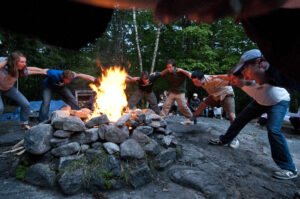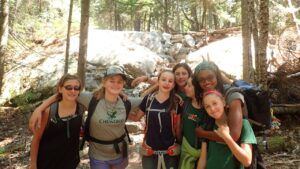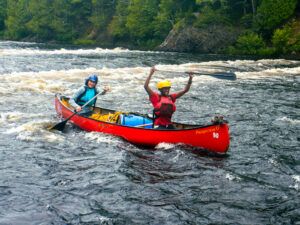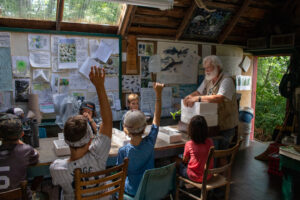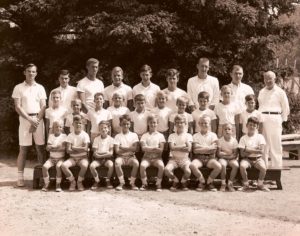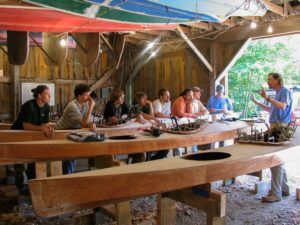Doc Shocked by Poetic Schlock!
– or –
Epistemological Onomatopoeic Disaster on the Neck!
– or –
“Bye Bye, Birdee!”
(Editor’s Note: last week’s article “It’s for the Birds” generated a flood of interest in the origin of the name “Chewonki”, but no response was quite so keen as the letter we received from Master Maine Naturalist Doc Fred (aka Fred Cichocki), a professor of ecology and evolutionary biology, and longtime leader of the nature program at Camp Chewonki. We reprint his comments below.)
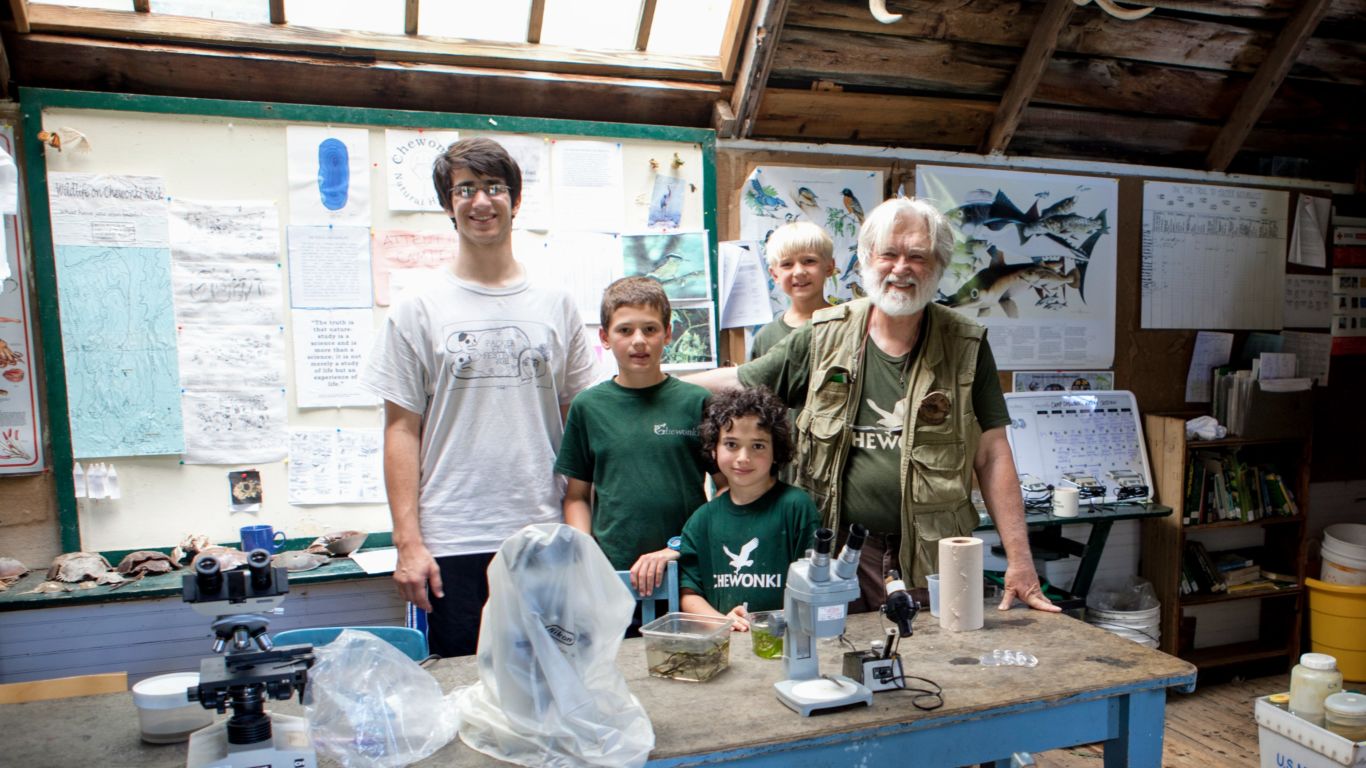
Dear Anne,
Since I have a vested interest in the matter, the article “It’s for the Birds“, in last week’s Connects really caught my attention. It made a good story, and as you say, it’s important to stay connected with our history. However, I have a few observations and comments, if you don’t mind.
First, assuming that you referred to the writing I offered several years ago about the Abenaki place names in the Camp Chewonki Cheer, I didn’t say that Chewonki means “where the moose lies down.” Rather, I said that I think the best-supported interpretation is “Big Ridge.”
Given that in other places, ridges are often called “hogbacks” or “horsebacks,” I suggested that with a little poetic license we could call ours a “mooseback”–hence, Chewonki, “Big Mooseback.” Incidentally, “Che-” (originally, perhaps, “K’chi”) is a common placename prefix meaning “big or great”, e.g., Chebeague, “Big or Great Island.”
Far from being convincing, poet Hannah Moore’s assertion that Chewonki means “the birds’ home” (as charming as that may be) is completely without linguistic foundation. Her unusual spelling “Jewankee” aside (no native Maine word begins with a “j” and few end with a double e, so Jewankee is certainly just a corrupted variant of Chewonki itself), almost all native Maine place names represent physiographic descriptions, are hunting/fishing/gathering, etc., references, or are connected with other important activities.
In the extensive compilation of native Maine place names and their meanings created by writer and folklorist Fannie Hardy Eckstorm (1865-1946), there is no category of descriptions in which “the birds’ home” would fit. To my mind, this alone weighs heavily against such a meaning. Even Eckstorm herself, in 1941, categorically dismissed this interpretation as pure fancy. Just because something comes down to us from an earlier era (the 19th century, in this case), doesn’t by itself make it more correct.
Then, too, native Maine place names were never, so far as we know, onomatopoetic. That stands against Chewonki meaning “the call of the geese (CheWONK, CheWONK…”). One would think that Arne Neptune would have known that.
Finally, there is nothing in the Abenaki language to suggest that the word Chewonki has anything whatsoever to do with tides, turning or otherwise.
Trying to work out the etymology of old words, especially those of an unfamiliar culture, is almost always fraught with problems and confusion. In the case of Abenaki, there is still no completely consistent orthography rendering the original spoken language into writing. Also, there were several distinct dialects of Abenaki, most of which are now extinct (e.g., the local Wawenok dialect; it was not Penobscot) Therefore, modern native speakers, say, of Penobscot or Passamaquoddy may not know (or may misinterpret) the meanings of some words not in their own dialect. And, there are instances of names given by Micq-Macqs or Maliseets to places outside of their own territory, names that were later rendered phonetically (not translated) into Abenaki, and thus impossible to translate as Abenaki words.
Until someone comes up with a better case, I stand by the meaning of Chewonki as “Big Ridge” (or “Big Mooseback”). ‘Nuf said.
Be well. I can’t wait to be back at camp.
Yours,
Fred
(Editor’s Note: Special thanks again to Doc Fred for his ongoing contributions to Chewonki- always at the ready with a hidden gem of knowledge.)
